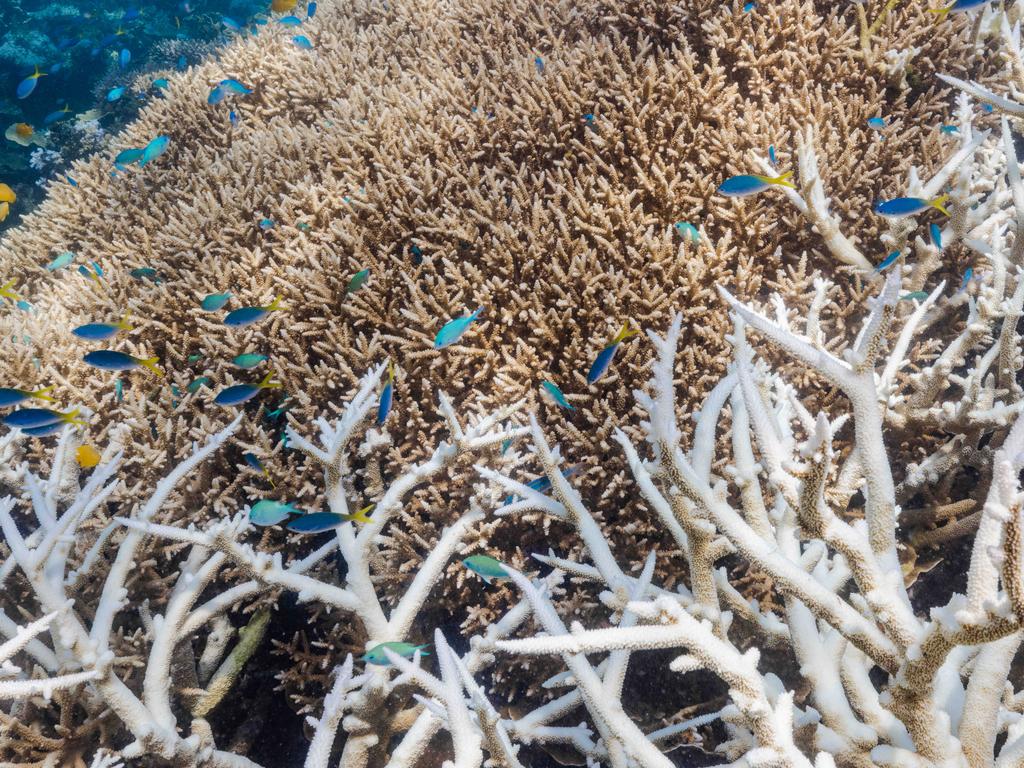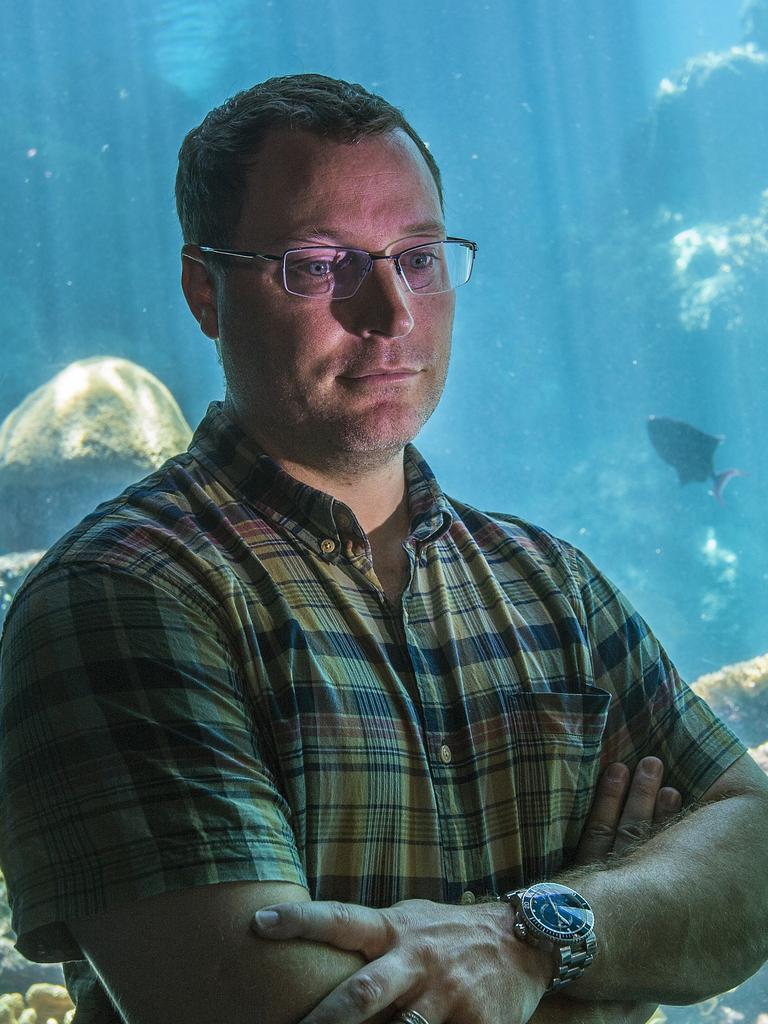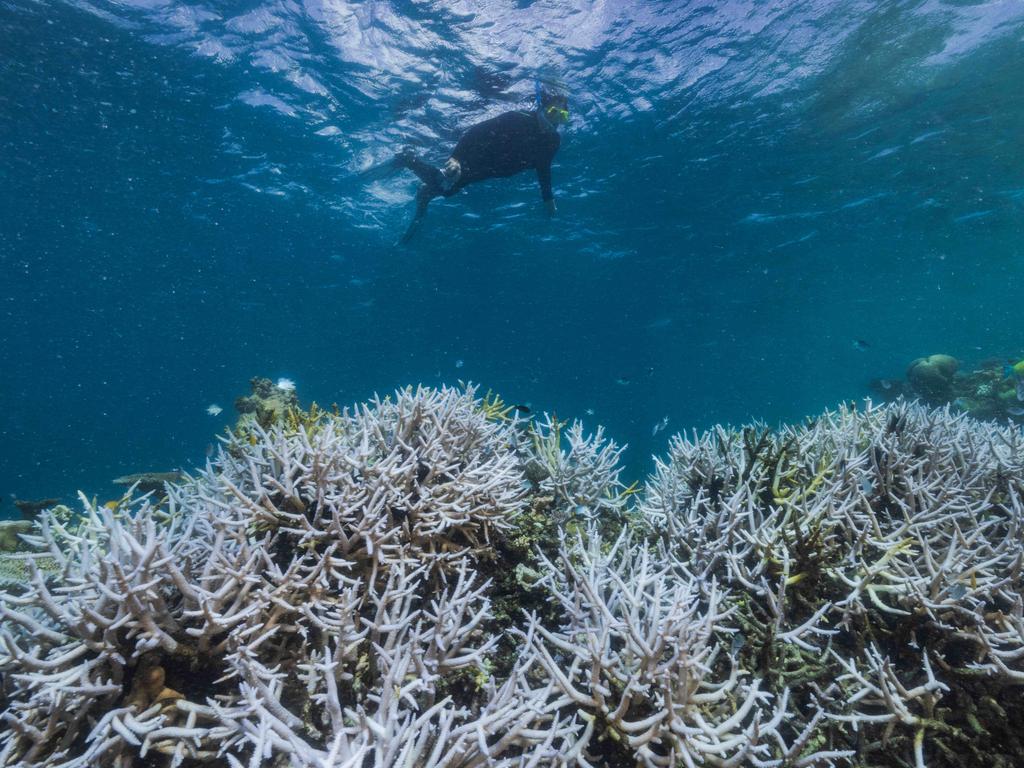‘Severe’ bleaching confirmed on Great Barrier Reef
The extent of coral bleaching on the Great Barrier Reef has been revealed just as UNESCO observers are on hand to see the problem for themselves.
The Great Barrier Reef Marine Park Authority has confirmed mass coral bleaching on the 2300km natural wonder, the fourth such event in just six years.
Bleaching has occurred in all four management regions of the reef, a new report revealed, and while it varied in intensity, it was rated “mostly severe” in the Northern and Central areas. Scientists had also seen signs of “mortality” – dead coral – in these areas.
Bleaching in the Far North region of the reef was a combination of severe and minor, while the whitening of the coral in the Southern region was minor.
The Authority and the Australian Institute of Marine Science used helicopters and light aircraft to do aerial surveys of close to 750 individual reefs to ascertain the extent of the problem.
“It is important to note that bleached coral is stressed but still alive,” the Authority said its report.
“If conditions moderate, bleached corals can recover from this stress, as was the case in 2020 when there was very low coral mortality associated with a mass bleaching event.”
The report stressed not all reefs have been affected by bleaching, and those that have experienced the phenomenon were not all equally affected.

Dr Neal Cantin from the Australian Institute of Marine Science said a “severe” rating meant “more than half the living coral cover” was clearly affected – either turning completely white or producing telltale fluorescent yellow, pink or blue pigments.
The corals produce these pigments “in an attempt to protect their tissue from the heat,” Dr Cantin said.
The Bureau of Meteorology said the Coral Sea and Great Barrier Reef regions both had their warmest December on record in 2021, and in the Coral Sea, “December sea surface temperatures were the warmest on record for any month of the year”.


The Great Barrier Reef experienced mass bleaching in 1998, 2002, 2016, 2017 and 2020, but the 2022 event comes as members of the UNESCO World Heritage Committee are in Queensland to make their own observations.
Last year the Committee had proposed listing the Great Barrier Reef as being “in danger,” but the Morrison government successfully negotiated for a deferral on such a decision.
A spokesman for Environment Minister Sussan Ley said the Authority would continue to monitor the reef.
“Events such as this underline the importance of the $1 billion of additional funding we are investing in world leading science and reef management to strengthen the resilience of the reef and reduce local pressures as we support global efforts to reduce emissions,” the spokesman said.

Environment groups blasted the government for continuing to back high-emitting industries.
Queensland Conservation Council Director Dave Copeman said “burning coal and trashing coastal waterways both have helped cause this current bleaching crisis”.
“In the same week that UNESCO surveys the reef, Barnaby Joyce is announcing billions of dollars for new dams that would impact on critical reef catchments and provide water resources to coal mining, the industry that fuels global warming and coral bleaching,” Mr Copeman said.
Australian Marine Conservation Society campaign manager Dr Lissa Schindler said the World Heritage Commission members “should be taken for an aerial survey … to view the most severely impacted areas”.
“The bleaching event underlines the urgency of acting now to stop approving and supporting fossil fuel projects,” Dr Schindler said.




